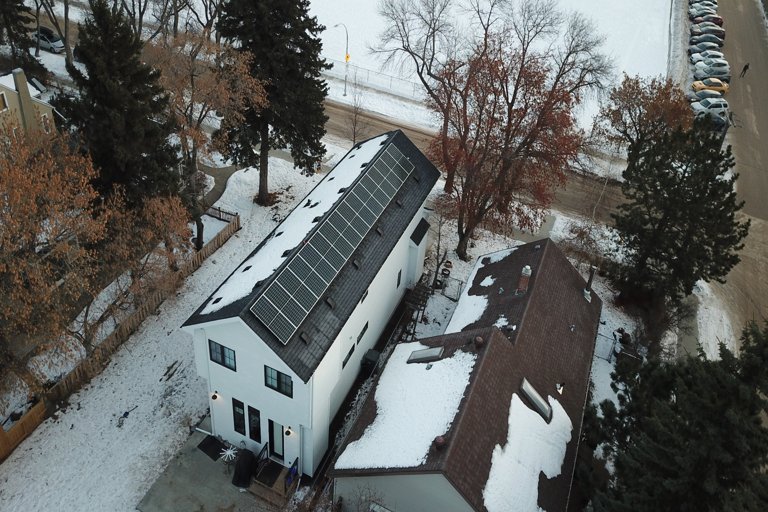Solar Tech Innovation Blooms in Northern Alberta
A local green-tech company is pushing boundaries with winter-resilient solar panels designed for Canadian climates.

In the heart of northern Alberta, where winters are long and sunlight can be scarce, a small company is rewriting the rules of solar energy. Borealis Solar, based in Peace River, has developed a line of photovoltaic panels specifically engineered to function in sub-zero temperatures and low-angle sunlight—conditions that previously rendered solar power inefficient in the region.
Founded by a group of engineers and environmentalists, the company’s new ColdSun panels use a proprietary coating that repels snow and enhances absorption during short daylight hours. The technology has sparked interest from municipalities and off-grid communities across northern Canada.
Last month, Borealis completed a 100-home pilot installation in High Level, replacing diesel generators with rooftop solar arrays paired with compact battery banks. The result: energy bills dropped by over 40%, and carbon emissions were slashed within weeks.
The panels also proved durable during recent cold snaps. 'We saw consistent output even when temperatures fell below -30°C,' said CEO Natasha Roy, who noted that previous systems would have shut down or required extensive maintenance.
What makes Borealis Solar notable isn’t just its technology—it’s their local-first approach. The company employs technicians and apprentices from nearby First Nations communities and collaborates with high schools on renewable energy education.
Alberta Innovates has taken notice, awarding the startup a $750,000 grant to scale production and support additional pilot projects. Meanwhile, the provincial government is assessing whether the ColdSun tech could be deployed in public buildings in remote areas.
Industry analysts say the market potential is vast. 'Northern resilience is a growing segment in renewable energy,' said Cleo Armstrong, a clean tech advisor. 'Borealis is positioning itself at the intersection of innovation and necessity.'
The company has already secured deals with outfitters in the Northwest Territories and eco-tourism lodges near Jasper. They're also working with agricultural operations to integrate solar into irrigation and livestock systems.
Unlike many startups, Borealis Solar remains privately owned and has turned down offers from major energy firms. 'We’re building something that fits the land, not just the market,' said co-founder Malik Desrosiers.
At the company’s research site, test panels are monitored by drones and AI software that tracks snow accumulation, output variations, and long-term degradation. The data is fed back into the design process every quarter.
Community reaction has been overwhelmingly positive. 'I never thought solar would work here,' said Evelyn St. Pierre, a teacher in Manning whose school now powers its science lab with Borealis panels. 'But it’s working—and inspiring the kids too.'
Borealis Solar hopes to double production capacity by next spring and eventually license its coating technology to other panel manufacturers worldwide. For now, it remains a northern success story built on cold weather, clean power, and community pride.